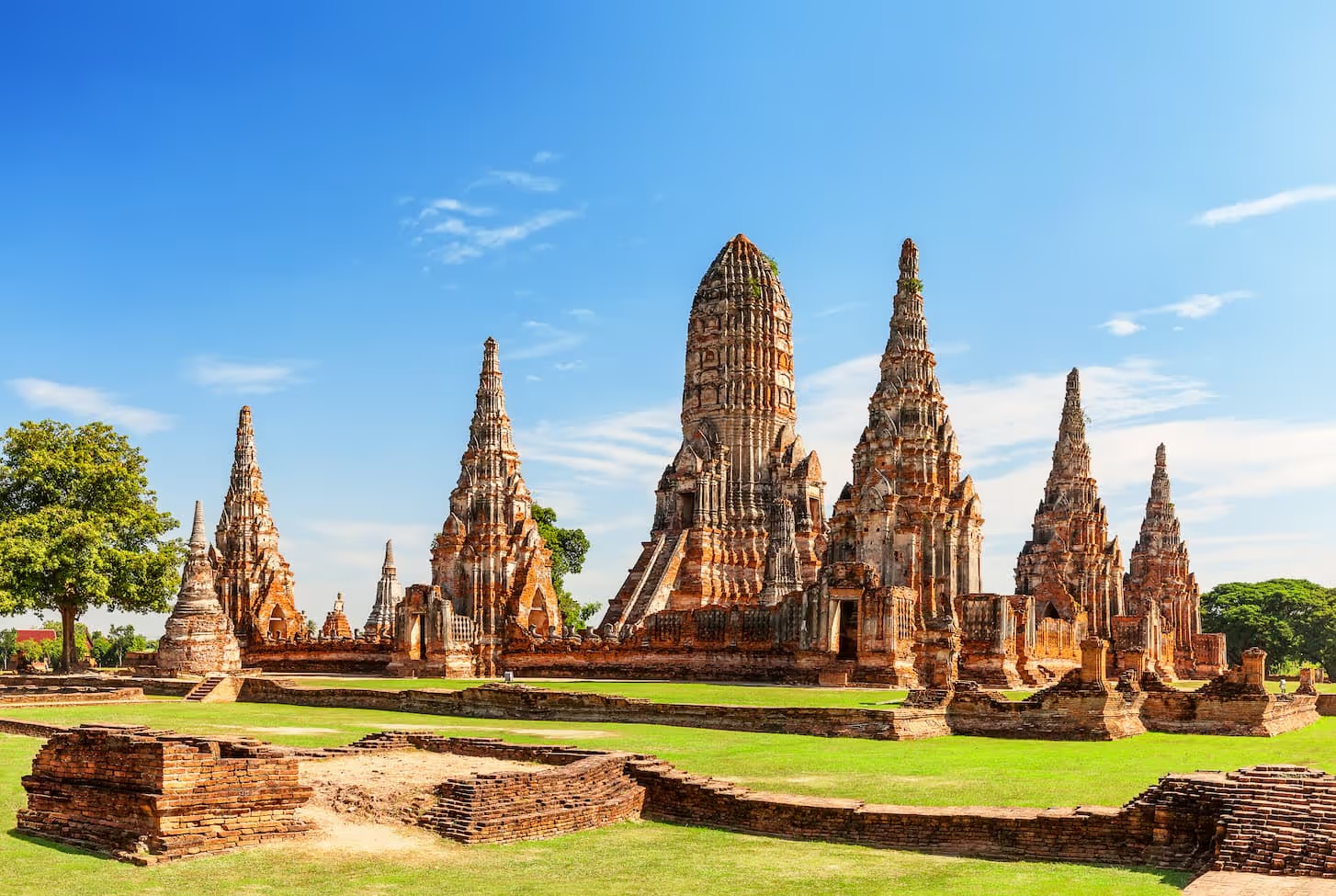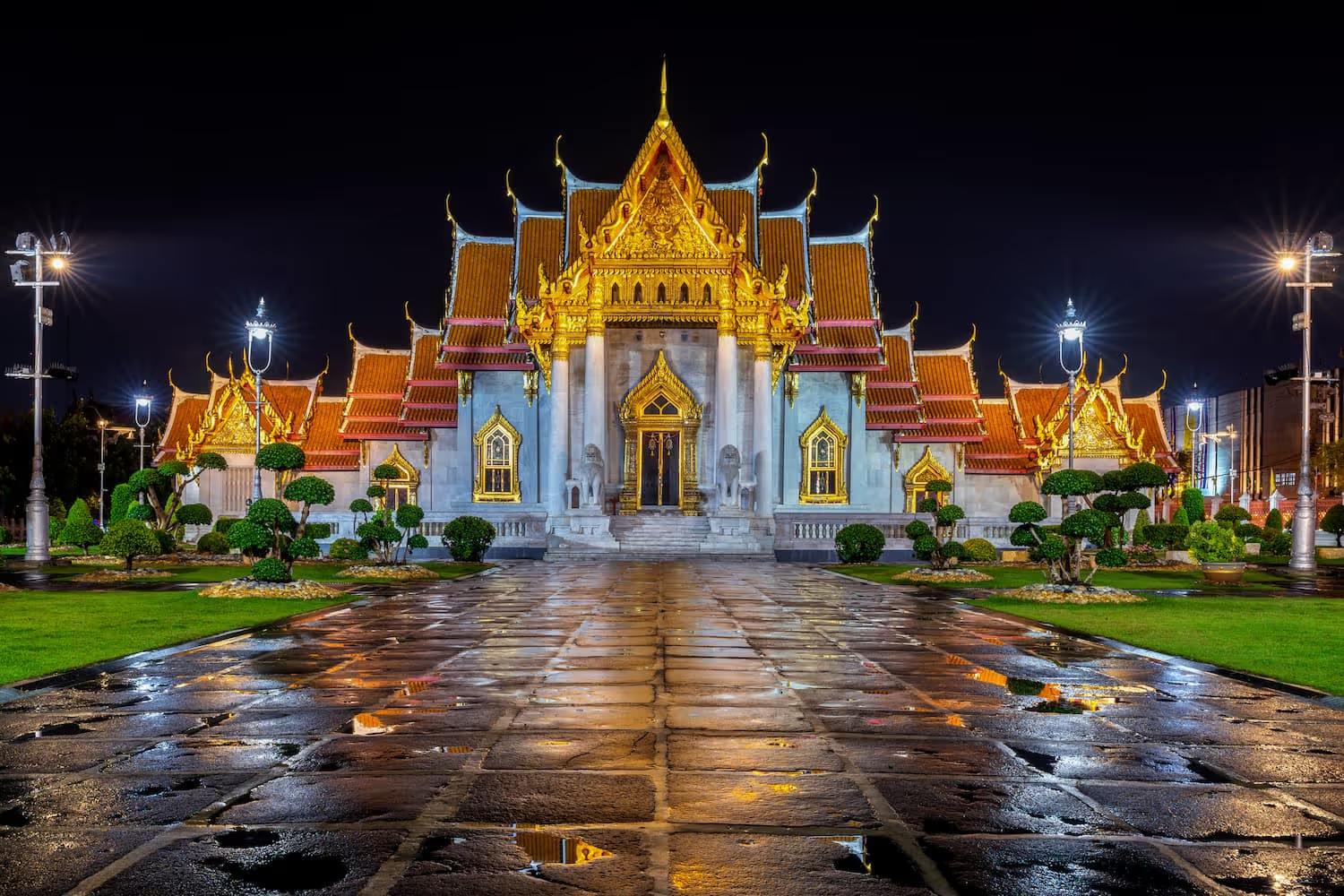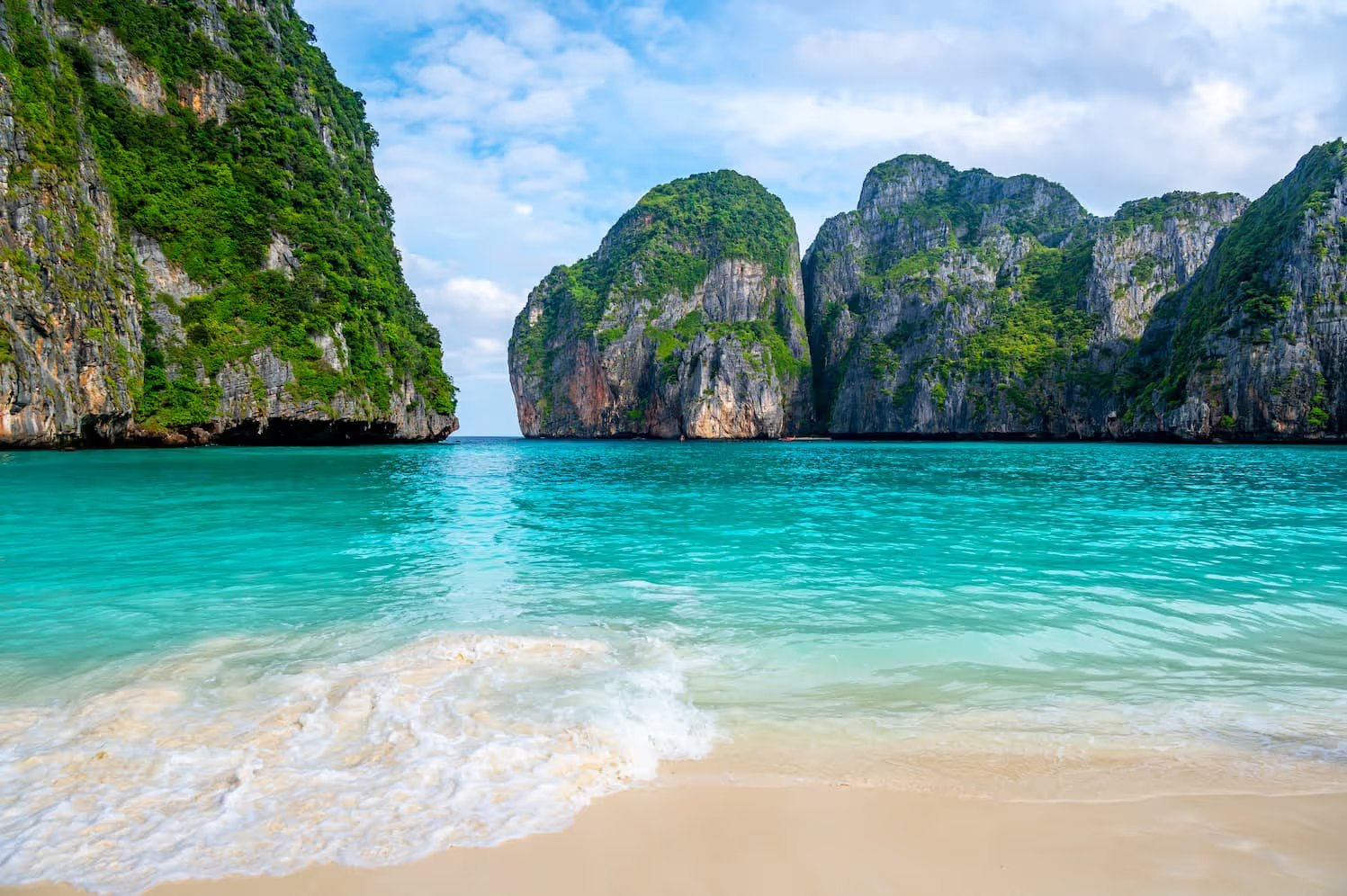Thailand, often called the "Land of Smiles," is a captivating Southeast Asian nation known for its rich culture, pristine beaches, and bustling urban life. From the energetic streets of Bangkok to the tranquil islands of Phuket and Krabi, Thailand offers a diverse blend of experiences. Its unique mix of ancient temples, vibrant markets, and modern amenities makes it an attractive destination for expats and digital nomads. The country's welcoming locals, affordable cost of living, and robust tourist infrastructure contribute to its reputation as a top relocation choice.
Culture
Thailand’s culture is deeply rooted in Buddhism, which influences its traditions, art, and everyday life. Visitors can marvel at intricate temples, participate in lively festivals like Songkran and Loy Krathong, or enjoy the country’s iconic cuisine, from spicy curries to fresh street food. Family and community are highly valued, and Thai society emphasizes respect and harmony.
Do’s and Don’ts
✅ Do greet others with a "wai" (palms pressed together with a slight bow).
✅ Do dress modestly, especially when visiting temples.
✅ Do remove your shoes before entering someone’s home or sacred spaces.
❌ Don’t touch anyone’s head, as it is considered sacred.
❌ Don’t point your feet at people or religious objects.
❌ Don’t raise your voice in anger, as it goes against the Thai cultural value of maintaining "face."
Government
Thailand is a constitutional monarchy where the King serves as a revered cultural figure. The parliamentary system includes a Prime Minister as the head of government, a bicameral legislature (House of Representatives and Senate), and an independent judiciary. The country is divided into 77 provinces, with Bangkok enjoying special administrative status as the economic and political center.
Social media
Social media is deeply integrated into Thai life. Platforms like Facebook and LINE are essential for communication, while TikTok and Instagram are popular for entertainment and lifestyle sharing.
- LINE: Primary messaging app.
- Facebook: Common for social and business interactions.
- Instagram: Widely used for photo-sharing and influencers.
- TikTok: Popular with younger audiences.
- YouTube: A go-to for music, tutorials, and vlogs.
National sport
Muay Thai, or Thai boxing, is Thailand’s national sport and a significant cultural export. Combining martial arts and tradition, Muay Thai attracts both locals and international enthusiasts. Stadiums like Lumpinee and Rajadamnern in Bangkok host thrilling matches. Football and badminton are also widely enjoyed.

.png)
.avif)
.svg)














.avif)









.svg)


.avif)



.svg)
.svg)
.svg)
